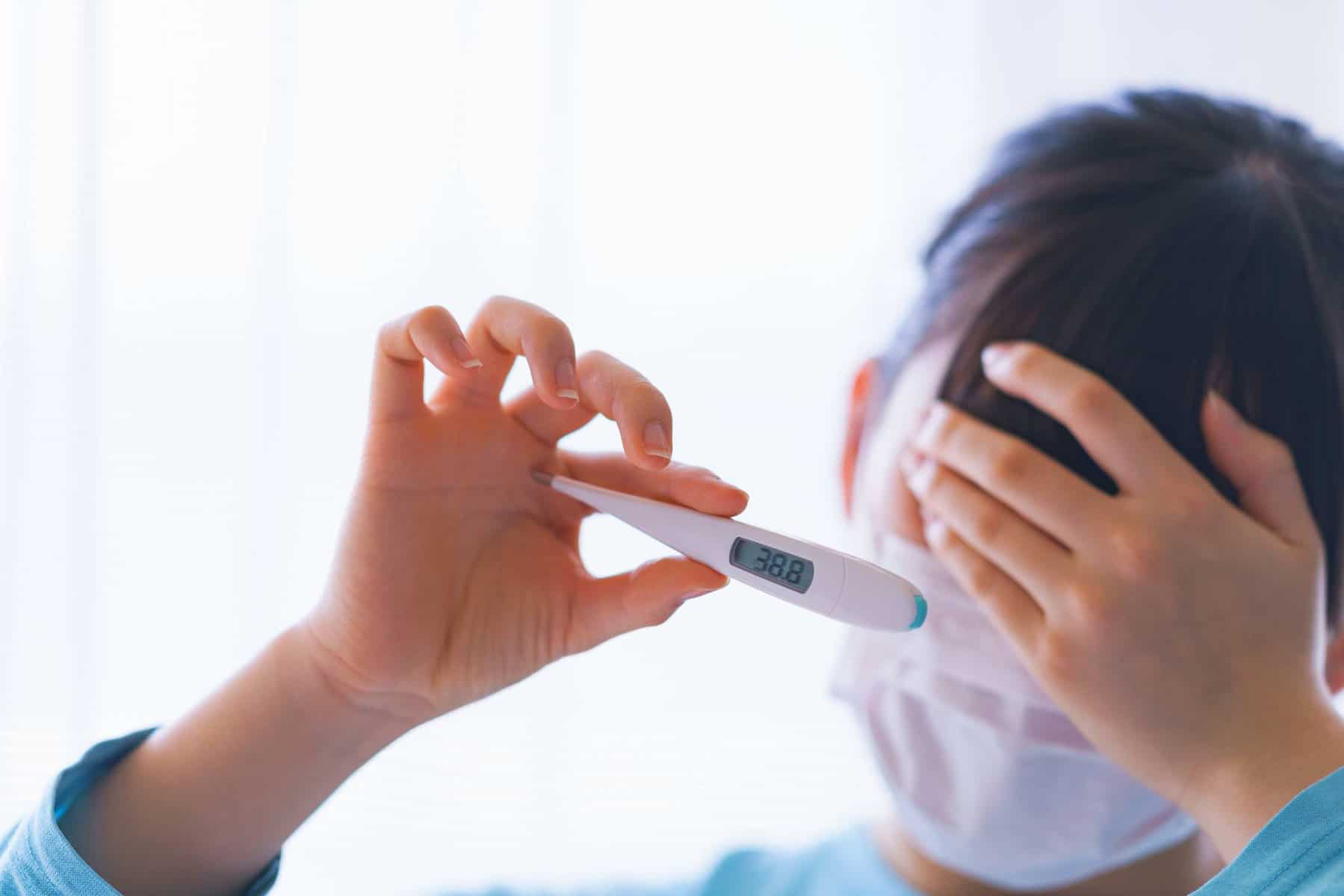Understanding Fever After Vaccines: A Parent’s Guide
Hello all you super parents out there! If you’ve recently taken your bundle of joy for their vaccinations and are concerned about the possibility of a fever, fear not! We’ve put together this sunny guide to help you understand why a post-vaccination fever might occur, how you can manage it, and when it might be time to call a healthcare professional. So, let’s dive right into the world of vaccines and little one’s wellbeing with a smile!
Why Do Fevers Occur After Vaccinations?
First things first: seeing a fever in your child after vaccination is more common than a rain shower in springtime! It’s completely natural and is actually a sign that the immune system is working hard – kind of like a busy bee in a beautiful garden. When a vaccine is administered, the body thinks it’s being invaded by the disease the vaccine is meant to protect against, and so it kicks into high gear to fight off these “invaders.” One way the body defends itself is by raising its temperature, which can result in a fever. It’s the body’s way of saying, “Hey! I’ve got this handled!”
Typical Fever Patterns and What They Mean
Just as flowers bloom at different times, fevers can rise and fall in various patterns after vaccination. Some vaccines, like the MMR (measles, mumps, and rubella), might not lead to a fever until one to two weeks after the shot, which is normal. Other vaccines may cause a mild fever within a few hours. These fevers are usually low-grade and short-lived, much like a swift breeze.
How to Care for Your Child with a Post-Vaccine Fever
Caring for a little one with a fever can be like navigating a boat on a sunny yet windy day. The key is to keep your cool and provide comfort. Here’s how:
- Keep them hydrated: Offer plenty of fluids. Just like plants need water to grow, children need fluids to stay hydrated, especially when they’re feverish.
- Dress them comfortably: Dress your child in light, breathable clothing. Think of it as their comfy, cozy attire while their body is busy at work.
- Monitor the fever: Use a reliable thermometer to keep track of their temperature. If you wouldn’t guess the temperature without a thermometer outside, don’t guess your child’s fever without one!
- Be a soothing presence: Cuddles and soothing words can work wonders, almost like the gentle warmth of the sun on their face.
- Medication if advised: Your doctor might recommend a dose of children’s acetaminophen or ibuprofen to ease discomfort. Think of this as adding a little bit of fertilizer to help a flower along – not too much, just the right amount as advised.
Remember, every child is unique, just like every flower in the meadow. Their response to vaccines might also be unique, and it’s perfectly okay to consult your doctor if you’re concerned about anything out of the ordinary.
When to Call the Doctor
So, when is it time to ring up the good doctor? While most fevers after vaccination aren’t a cause for alarm and will typically resolve on their own, like morning fog, there are certain signs to be on the lookout for:
- If a fever lasts for more than 48 hours, it’s like an overcast day that isn’t clearing up; you’ll want to give your healthcare provider a call.
- If your child’s fever is higher than what you’d consider just a warm day – specifically, if it’s 102°F (39°C) or higher – it’s time to seek medical advice.
- Any signs of a severe allergic reaction, such as difficulty breathing, hives, or a fast heartbeat, are like storm clouds on the horizon. Seek immediate medical attention.
Your doctor is your partner in your child’s health, much like a gardener is to their garden. Don’t hesitate to share your concerns or ask questions.
As we wrap up this section of our comprehensive guide, remember that while a fever can feel like a bit of a dark cloud, it’s often just a temporary visitor passing through your child’s bright sky. Stay tuned for the continuation of this guide, where we’ll discuss how to differentiate between a simple post-vaccine fever and more serious reactions, and delve into each vaccine’s specific side effects. Keep that sunshine smile, and know that you’re doing an amazing job at navigating the vast ocean of parenthood!

5 Things Parents Should Know in Preparing for Fever After Vaccines
When the tiny humans of our tribe are due for their vaccines, it’s like getting them ready for a little adventure – you want to be prepared for every twist and turn! Here are five golden nuggets of wisdom for you, the amazing navigators of this journey:
- Know the vaccines and their common side effects: The best adventure guides know the terrain. In the case of vaccines, this means knowing which ones your child will receive and what reactions to expect. A little bit of research before the doctor’s visit can make you feel much more at ease.
- Plan for comforting aftercare: Think about cozy environments – a favorite blanket or toy can be the perfect companion for a post-vaccine snuggle session. Setting up a little comfort nook at home can help your child feel secure while their immune system does its incredible work.
- Prepare for temperature management: Have a good quality children’s thermometer on hand. Also, learn the basics about fever reducers like acetaminophen or ibuprofen, including proper dosing. Check with your child’s doctor if it’s okay to administer these before the actual fever hits, as a preemptive measure.
- Keep your schedule flexible: After vaccines, your little trooper might need some extra cuddle time, or they might just surprise you with a burst of post-vaccination energy! Either way, it’s best not to have too many activities planned out for the day of and the day after vaccinations.
- Communicate with your healthcare provider: If you have any worries, let your healthcare provider know! They are like the co-captain of your ship, ready to help you steer through the waves of parenthood and keep your little sailor safe and sound.
Arm yourself with knowledge, a dash of precaution, and a sprinkle of love – you’ll be the hero your child needs as they brave the world of vaccines. After all, that little fever is just a temporary squall in the grand voyage of growing up healthy and strong!
So keep these tips in your heart and your preparation kit, and you’ll be set to calmly face whatever comes after that quick little jab. Sublime moments await post-vaccine: the quiet cuddles, the proud milestones, and the joyous celebrations of a healthy, protected kid. Shine on, dear parent, your preparedness is the beacon that guides your child through any post-vaccination gale to the serene harbor of wellbeing.
Entertain no doubt, intrepid guardians of health! Should your child’s post-vaccination fever leave you feeling uneasy, know that a call to your doctor can dissolve those worries like the sun melts away the morning dew. In the grand saga of parenthood, these are but small challenges, and with this guide by your side, you’re more than ready to meet them with a confident, nurturing embrace.
Stay cheerful and embrace the journey, for each vaccine brings your child one step closer to a life full of exploration, learning, and boundless potential. Now, let’s set sail to the next part of our guide where we’ll bolster your knowledge on differentiating between normal post-vaccine reactions and those that require a little bit more attention. Anchor’s aweigh!
See more great Things to Do with Kids in New Zealand here. For more information see here
Disclaimer
The articles available via our website provide general information only and we strongly urge readers to exercise caution and conduct their own thorough research and fact-checking. The information presented should not be taken as absolute truth, and, to the maximum extent permitted by law, we will not be held liable for any inaccuracies or errors in the content. It is essential for individuals to independently verify and validate the information before making any decisions or taking any actions based on the articles.




